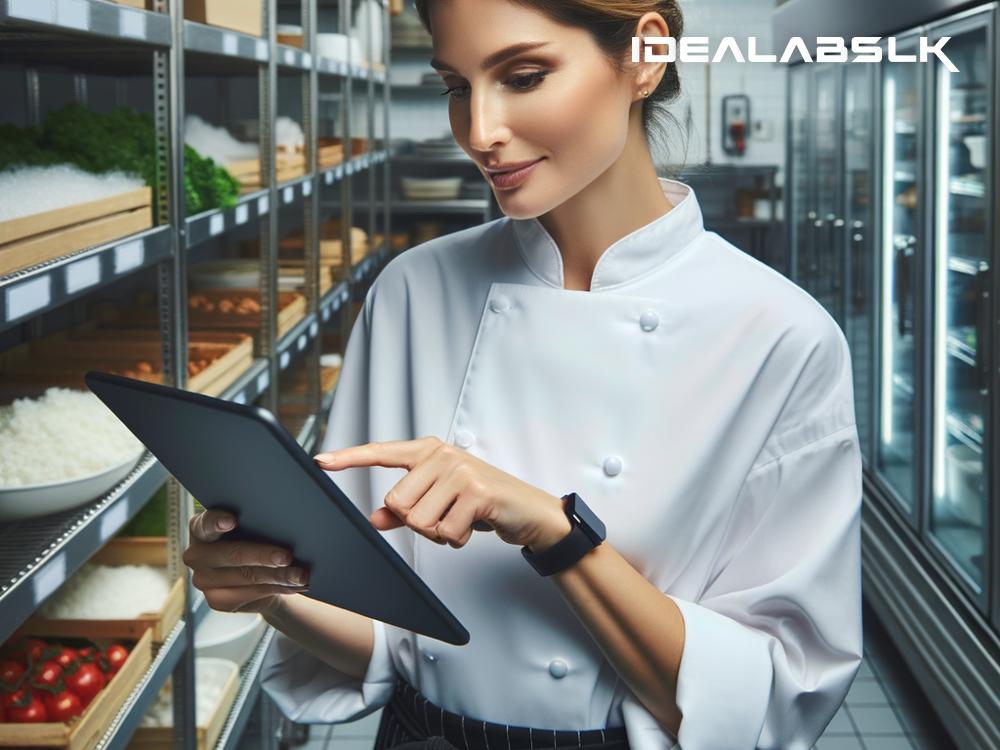Title: How AI-Driven Food Inventory Solutions Are Transforming Big Restaurants
In the bustling world of large restaurants, where every second counts, keeping track of piles of ingredients can be as tricky as mastering a perfect soufflé. That's where Artificial Intelligence (AI) steps in, transforming kitchens by making managing food inventory a piece of cake. Today, let's dive into how AI-driven food inventory solutions are revolutionizing operations in large restaurants, ensuring that chefs and restaurant managers can focus more on creating delicious dishes rather than worrying about inventory levels.
The Recipe for Success: Understanding AI in Inventory Management
Before we get into the nitty-gritty, let’s unpack what AI-driven food inventory solutions actually mean. Imagine a smart assistant, but instead of reminding you about your next meeting, it keeps an eye on your pantry. It knows exactly how much of each ingredient you have, predicts what and how much you’ll need in the future, and even places orders before you run out. This smart assistant isn't a person but a sophisticated program designed to make inventory management as smooth as a well-made sauce.
The Ingredients of Change
-
Real-Time Tracking: One of the biggest challenges in a large restaurant's kitchen is keeping track of what's in stock at any given moment. AI solutions tackle this by monitoring inventory in real-time, offering a live look at what's available, what's running low, and what's been untouched.
-
Predictive Ordering: By analyzing historical data, including past orders and seasonal trends, AI can forecast future ingredient needs. This means restaurants can avoid both overstocking and understocking, reducing waste and saving money.
-
Automated Ordering: When it’s time to restock, AI can take the reins. Based on its predictions, the system can automatically place orders with suppliers, ensuring the kitchen never runs out of essential ingredients.
-
Waste Reduction: Food waste is a significant issue for large restaurants. AI helps by providing insights into which ingredients are frequently wasted, allowing managers to adjust their orders or menu accordingly.
-
Enhanced Chef Creativity: With AI handling the routine task of inventory management, chefs can devote more time to what they do best: creating culinary masterpieces. Freed from the constraints of manual inventory checks, they can focus on innovation and experimentation.
Serving Up Benefits: The Impact on Large Restaurants
The adoption of AI for inventory management comes with a buffet of benefits for large restaurants:
-
Efficiency and Time Savings: Manual inventory checks are time-consuming and prone to errors. AI systems streamline these processes, saving precious time and reducing mistakes.
-
Cost Reduction: By optimizing stock levels and reducing waste, restaurants can significantly cut costs. For businesses operating on thin margins, these savings can be game-changing.
-
Sustainability: Reducing food waste not only benefits a restaurant's bottom line but also contributes to environmental sustainability, a concern that's increasingly important to both businesses and consumers.
-
Competitive Advantage: Restaurants utilizing AI-driven inventory solutions can operate more smoothly, adapt more quickly to changes in demand, and provide better experiences for their customers, giving them an edge in a competitive market.
Bringing AI to the Table: Real-World Examples
Across the globe, large restaurant chains and high-end eateries alike are integrating AI into their kitchens. From fast-food giants using predictive analytics to ensure your favorite items are always in stock, to fine dining establishments employing AI to cut down on waste and source sustainable ingredients, the impact is widespread. These tools are not just about keeping shelves full; they're about optimizing the entire operation, from farm to table.
The Future is Served
Looking ahead, it’s clear that AI-driven food inventory solutions are more than just a fleeting trend; they're a fundamental shift in how large restaurants operate. As technology continues to evolve, we can expect these systems to become even more sophisticated, with even greater capabilities for prediction, automation, and integration with other restaurant management systems.
In conclusion, AI-driven food inventory solutions are transforming the landscape of large restaurants, making operations more efficient, sustainable, and cost-effective. By harnessing the power of AI, restaurant owners and chefs can not only streamline their inventory management but also unleash their creativity, crafting dining experiences that delight and inspire. In a world where the pace of change is relentless, those who embrace these technologies will not only survive but thrive.

